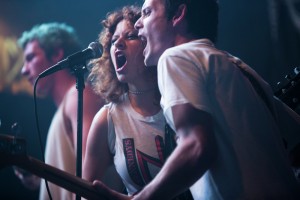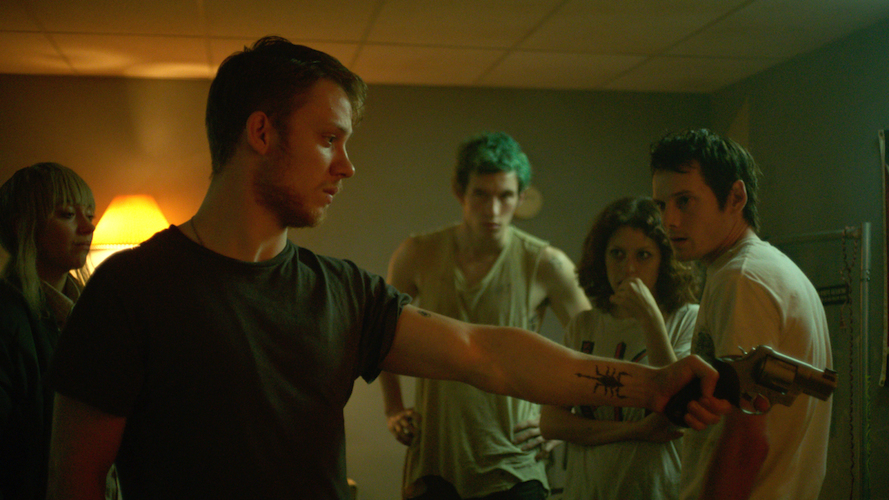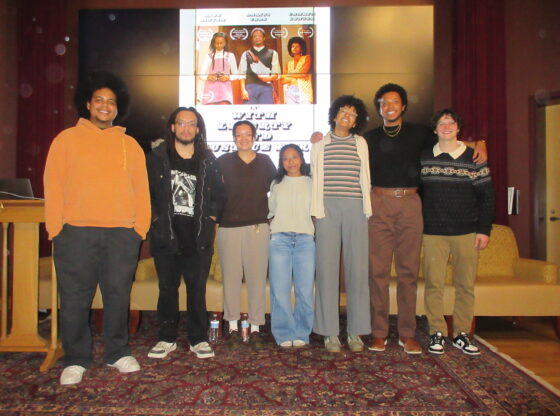After an unsuccessful tour, a small-time punk band called The Ain’t Rights (Anton Yelchin, “Star Trek,” Alia Shawkat, “Arrested Development,” Joe Cole, “Secret in Their Eyes,” Callum Turner, “Victor Frankenstein”) lands a final gig at a grimy bar in the backwoods of Oregon. Before long, the band is trapped in the bar, a stomping ground for a local cult of white supremacists led by the enigmatic Darcy Banker (Patrick Stewart, “X-Men”), after witnessing a murder in the venue’s green room. The misfits are then forced to team up with a cynical cult member (Imogen Poots, “28 Weeks Later”) and enter into a harrowing fight for survival.
A follow-up to his near-perfect revenge film “Blue Ruin,” director Jeremy Saulnier basically takes the punk movement, turns it into a horror-thriller film and amps it up to shattering levels. The film is an astonishing genre piece, a movie so elevated by its dedication to its aesthetic that it plays out like an adaptation of some cracked, forgotten mixtape. The film celebrates the punk music that gives it life with the rampant energy of a concert flowing through its veins. It also ostracizes it, reminding viewers of its radical dark side as a music genre that gave a sound to the skinhead rage that dominated the Americas in the 1980s. Saulnier’s style is what really sells the proceedings, putting viewers on edge with the film’s raucous concert scenes, then building up the violence with patient dread. Every moment feels so authentic that it’s all the more shocking when the blood starts spilling.

Giving confidence to the film’s rowdy energy are its incredible actors, who commit themselves entirely to their roles. Stewart’s brilliant casting is the real star here, taking his likeable father-figure type-casting, along with his Shakespearian expertise, and flipping them on their head. He is a sinister and savage manipulator, a well-spoken madman who will go down in history as one of the horror genre’s finest villains. Poots and Yelchin also put in remarkable work, with Poots’ deadpan fearlessness and Yelchin’s scrappy and aloof character playing well into the film’s punk roots. The writing behind Yelchin’s character is what really makes both his acting and the film’s themes shine, as it answers the entertaining question of what would really happen if a die-hard rocker was forced to be as aggressive as he pretends to be on stage.
As a whole, “Green Room” is another powerful testament to independent filmmaking’s finesse in taking mainstream genres and transforming them into high art. The film poses the big questions and frames culture in unique ways while also being entertaining as hell, which is no small triumph for a film as out there as this one. It took a lot of spirit and talent to create a thriller as original as this, and it will certainly stand out as one of the most finely crafted films of the year—if only more films rocked as hard as this one.
“Green Room” will open in theaters everywhere on April 29.











